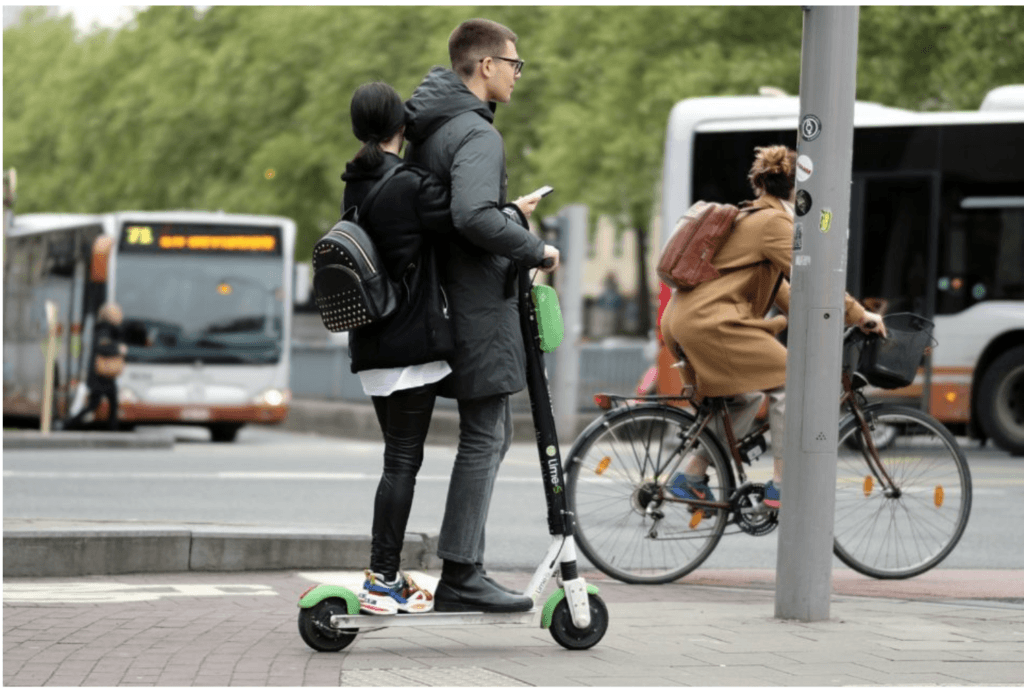In order to reduce congestion, pollution and CO2 emissions, shared mobility must complement and not be a substitute for public transport, according to the Centre on Regulation in Europe (CERRE).
Succeeding in this assumes the political authorities will be playing a more active role so as to optimise the use of public spaces in towns, according to a report made by CERRE and published on Tuesday.
The sharing of vehicles (cars, scooters, bikes, e-scooters, etc.) facilitated by the digital platforms "can complement public transport very well by catering for the first and final kilometres of journeys, by reaching areas where public transport is not profitable and where demand is so sporadic that service frequency must be poor."
But if it becomes a substitute for public transport, the only outcome will be an increase in traffic congestion, pollution and CO2 emissions, the study of this think tank notably promoting the regulation of digital businesses pointed out.

For the three authors, Yves Crozet, Georgina Santos and Jean Coldefy, public policy must "favour modes of transport that optimise the use of public space, and not those offering users a minute saving of time." In most towns, road transport is still too attractive.
The large-scale development of multimodal mobility, with services accessible in a coordinated way, will only come about on the double condition that "the regulations for using public roads (are) focused on incentives for shared mobility and on discouraging individual car use."
In spite of a poor reception of these measures by drivers, experts talk of increasing parking fees, congestion charges or reducing the amount of space cars can use. At the same time, the government has to invest in public transport, walking and bikes.
"While there are potential social advantages" (serving sparsely populated areas, services for elderly persons, the disadvantaged, those on a low income, etc.), the authorities will also have to subsidise new mobility services, CERRE urged.
The Brussels Times

